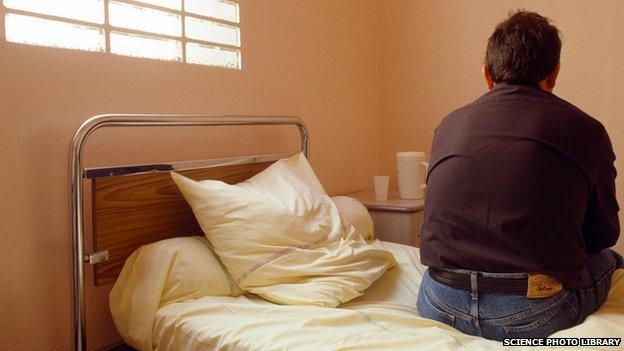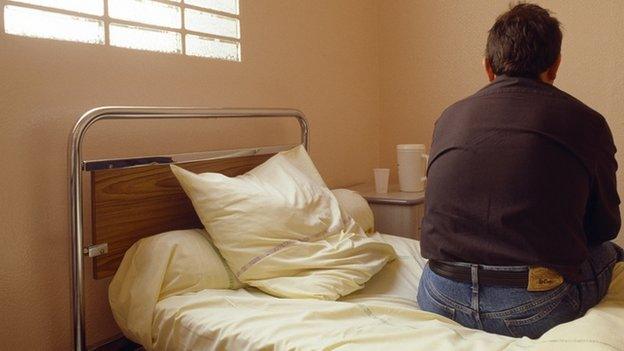Mental health bed shortage blamed on system
- Published

Delayed discharge and poor community provision are to blame for problems that mental health patients in England have accessing hospital beds, an inquiry has found.
Bed closures are not behind the difficulties, the independent commission report concluded.
The Royal College of Psychiatrists says the whole system of mental health care provision needs to be improved.
A spokesman for NHS England said it was determined to improve services.
A mental health taskforce had been established for that reason, he added.
The commission was set up earlier this year by the Royal College of Psychiatrists to look into concerns about a shortage of acute adult psychiatric beds.
Since 2011, more than 2,000 psychiatric beds have been closed across England.
'Awful stories'
The interim report found that 92% of wards were treating patients who could be cared for in community settings if they were available, while 16% of inpatients were well enough to go home but could not because other services, like appropriate housing, were hot available.
Lord Crisp, chairman of the commission, said: "There is undoubtedly a problem with finding beds for some patients, and the commission has heard awful stories of people having to be moved many miles from their homes in order to find the care they need.
"However, as our survey and other research shows, this appears to be largely due to there being significant numbers of patients ready for discharge but with nowhere else to go and others who have only been admitted because there weren't suitable alternatives for them outside hospital.
"Inpatient services play a vital role in mental health and the commission has been impressed by the determination and skills of many staff who care for patients within these wards. However, it is essential that these important services are used as effectively as possible."
The report says the problems with acute care have led to many patients feeling excluded from the system, while some staff are said to be demoralised, trapped in a constant process of crisis management.
Marjorie Wallace, chief executive of the mental health charity Sane, said: "While this report highlights well-known inadequacies of facilities and support when people are treated in the community, it underplays the real crisis, which is the lack of effective psychiatric inpatient care, the incredible loss of beds and the hidden closures of units.
A person in mental crisis still may be taken hundreds of miles across the country for treatment, or could face being detained in a police cell if no bed is available.
"Far from 'bed blocking' being the issue, people in distress and in need of continuing care are given no alternative and often left neglected, either in unsuitable wards, at home or in unsupported housing."
- Published28 November 2014

- Published2 June 2014
